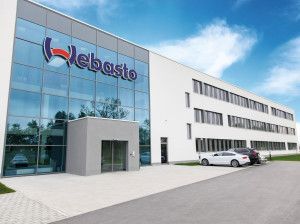Hildegard Wortmann on Audi's electrification, India plans

What is Audi India’s strategy for 2020 and beyond?
Our dealers are the backbone of our business, and we’re seeing a digital transformation happen on a day-to-day basis. When showrooms physically closed, our partners found creative ways to stay in contact with, or even win, new customers. In India, we pioneered the use of augmented reality (AR) and virtual reality (VR) in both, our online and on-site sales. Introducing these tools in the car-buying process has been met with huge positive resonance here. We have a full pipeline of future product launches across categories – from sedans, to compact cars, to SUVs – as well as technologies. The coming years will not be easy, and we will need to continue earning comfortable returns from our established core business while driving ahead the transformation of our industry.
From being the luxury segment leader in India, Audi is now trailing its rivals – has there been a change in focus or is regaining the No 1 position pivotal for Audi India?
Moving into the pole position as India’s No 1 premium car brand would obviously always be a significant milestone for Audi. We have placed a renewed focus on customer centricity, and it remains crucial for Audi that we deliver the best value to our customers. Our business model is firmly focused on profitable, sustainable growth and products, and it will serve as our future road map for both, India and globally. A guiding principle will be quality over quantity as we shape the future of premium mobility.
The Indian luxury car market is comparatively small compared to other key markets. Is India still seen as a potential growth driver by AUDI AG?
The Indian luxury car market comprises approximately 1.2 percent of the overall Indian car market. The luxury segment accounts for 35,000 to 38,000 units sold per year here, which is still a relatively small number for a market the size of India’s. In a 2019 white paper, the World Economic Forum notes that the Indian automotive industry is one of the fastest-growing markets globally. So we definitely see strong potential for growth in the Indian market. Moreover, while India’s electric vehicle (EV) market saw strong growth in 2019, it still only represents less than one percent of the global EV market. We believe India’s focus on clean, sustainable mobility – driven by consumer, economic and environmental concerns – dovetails perfectly with our shift towards an electric future. We’re confident about the potential that this country has for premium cars in the medium to long term.
Aside from electrification, another theme at Audi is the expansion of the SUV range. Are SUVs set to replace other bodystyles?
Last year, we delivered around 7,78,400 SUVs worldwide, which corresponds to a share of around 42 percent of our overall global deliveries. The fully electric Audi e-tron also contributed to this increase, with a share of 1.4 percent. It is our first proof point that we can connect an SUV with sustainable e-mobility. However – while we are seeing SUVs gain an increasing share of sales, sales of sedans and other classes also remain strong.
Audi has announced moving into the realm of premium electric products globally by 2025. Could you elaborate?
Our goal is to become the leader in CO2 -neutral premium mobility. By 2025, the Audi portfolio will expand to include around 30 electrified models, of which 20 will be all-electric. At the same time, we want to increase the share of e-model sales to around 40 percent of the total. How will we accomplish these ambitious targets? By harnessing the synergy of both the Audi Group, and as part of the overall Volkswagen Group. Audi is currently the only manufacturer competing in the premium segment that is capable of utilising synergies at this scale through group-level cooperation. For example: We are teaming up with Porsche to cover the extensive development costs and investments for the Premium Platform Electric (PPE). For compact and mid-class models, we will use the Modular Electrification Platform (MEB). Approximately 20 million vehicles will be based on the MEB. The resulting economies of scale will enable us to offer our customers a superior range of Audi products at attractive price points. To implement this roadmap for electrification, Audi will be investing around 12 billion Euros by 2024.



No comments: